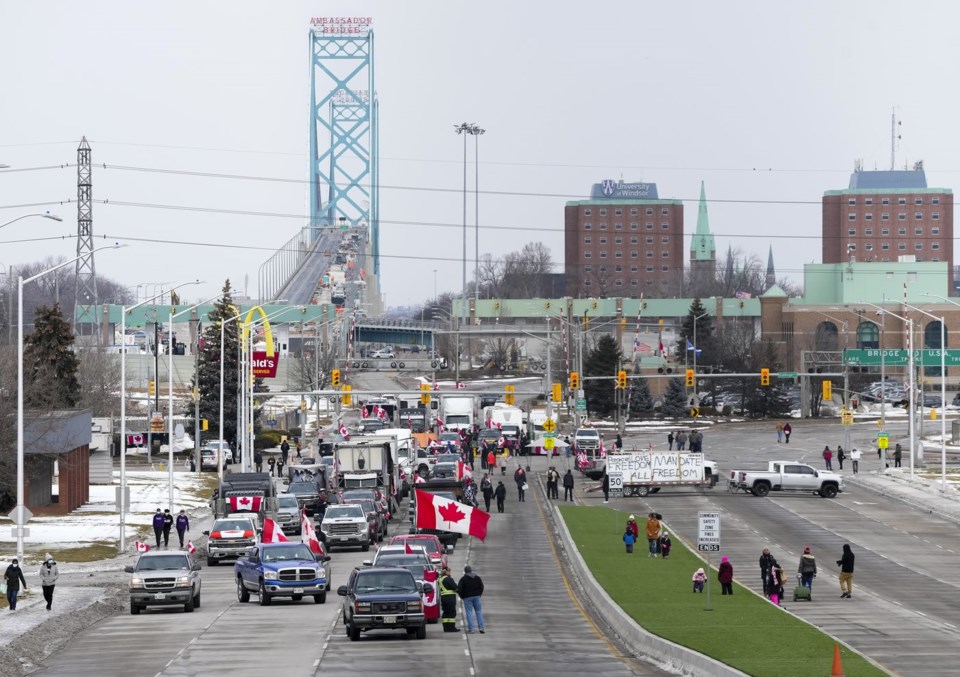The City of Windsor is suing the federal government over the costs incurred due to the so-called Freedom Convoy blockade at the Ambassador Bridge in early 2022.
The lawsuit filed Monday alleges Ottawa promised to fully cover the city's expenses related to the trucker convoy that cut off access to Canada's busiest trade corridor with the United States for six days.
It alleges the city relied on that funding commitment in its budgeting process, only to see Ottawa refuse to reimburse more than $900,000 of the expenses after deeming them ineligible.
The city further alleges the federal government's decision to withhold part of the money was arbitrary and left local taxpayers to foot the bill.
"Non-payment by Canada has caused Windsor to fund this deficit at the expense of local taxpayers from its limited capital budget used to fund roads, sewers and other infrastructure projects," the city says in its statement of claim.
The blockade shone a spotlight on a long-standing issue: the "improper downloading of policing in areas of federal jurisdiction to municipalities at local ratepayers’ expense," the document says.
The lawsuit also seeks compensation for ongoing expenses related to protecting Windsor's international border crossings, as well as a formal declaration of federal responsibility for policing and securing border crossings.
The allegations have not been tested in court.
A spokesperson for the federal Department of Justice said they are aware of the legal action and will review the statement of claim to determine next steps.
In the statement of claim, the city says managing and clearing the protest led to "significant" expenses for policing, emergency services, transit, communications and legal services.
In December 2022, about 10 months after the blockade, the city shared a breakdown of its anticipated expenses with the federal government, the document says. At the time, the total was about $6,865,000, it says.
Shortly afterward, the federal government agreed to reimburse the city for those costs, and Public Safety Canada issued a news release saying Canada would provide "up to $6.9 million in federal funding in 2022-2023," the claim alleges.
The city submitted an updated breakdown of its costs in 2023, with a new total of about $6,995,000, the document says.
In the fall of 2023, the federal government responded that it would only cover half of the city's legal fees, since those were not considered eligible expenses, the claim says.
The lawsuit alleges that the agreement reached in December 2022 "did not include any terms that limited the eligibility of the city’s expenses," and that Ottawa's decision to reduce the funding amounts to an "unjustified, arbitrary" breach of contract.
The Freedom Convoy protest began as a response to COVID-19 vaccine mandates for truckers crossing the Canada-U.S. border but grew into broader demonstrations opposing pandemic measures.
The protest saw a convoy of big rigs park in downtown Ottawa for weeks to demand the federal government drop COVID-19 restrictions and vaccine mandates.
This report by The Canadian Press was first published Nov. 4, 2024.
Paola Loriggio, The Canadian Press




